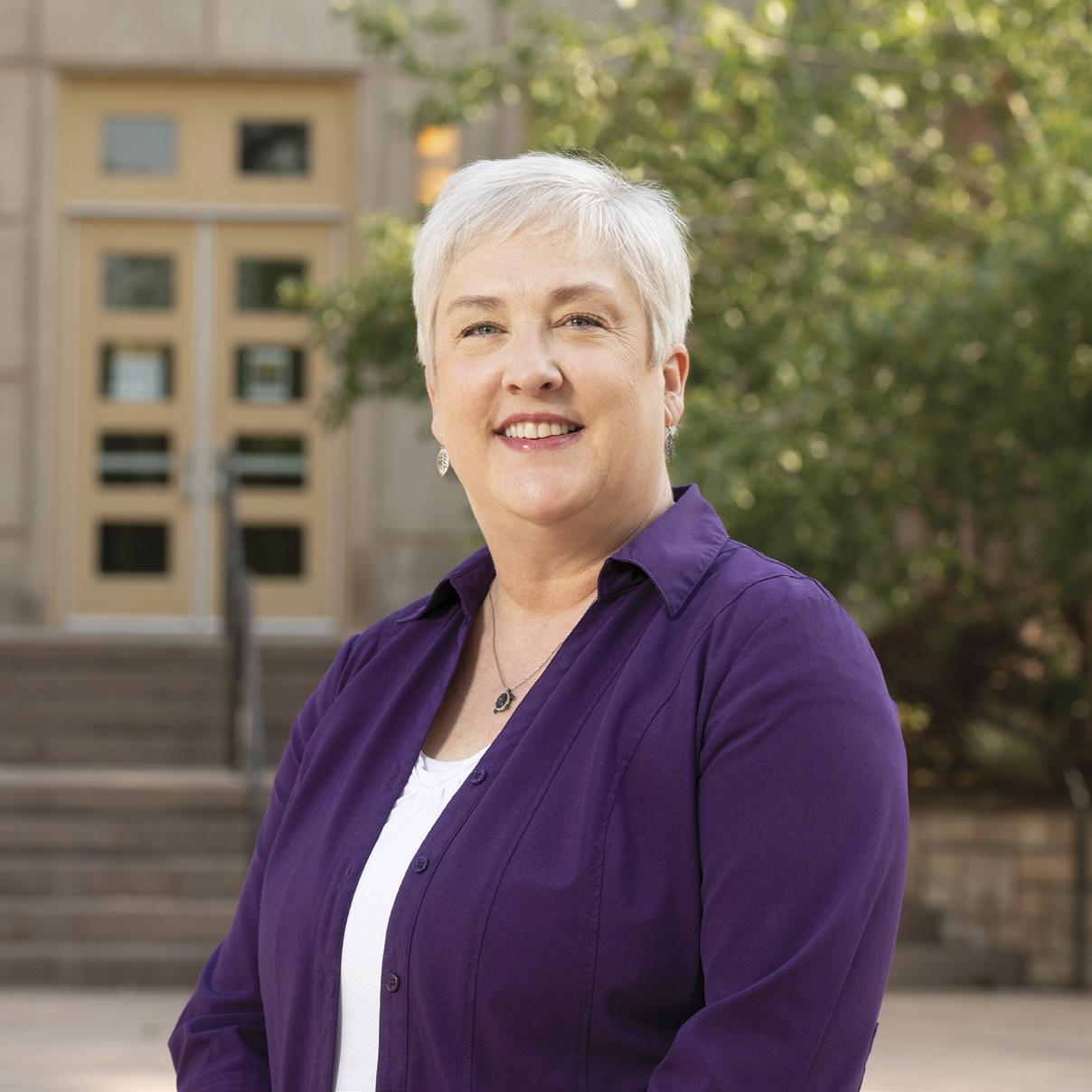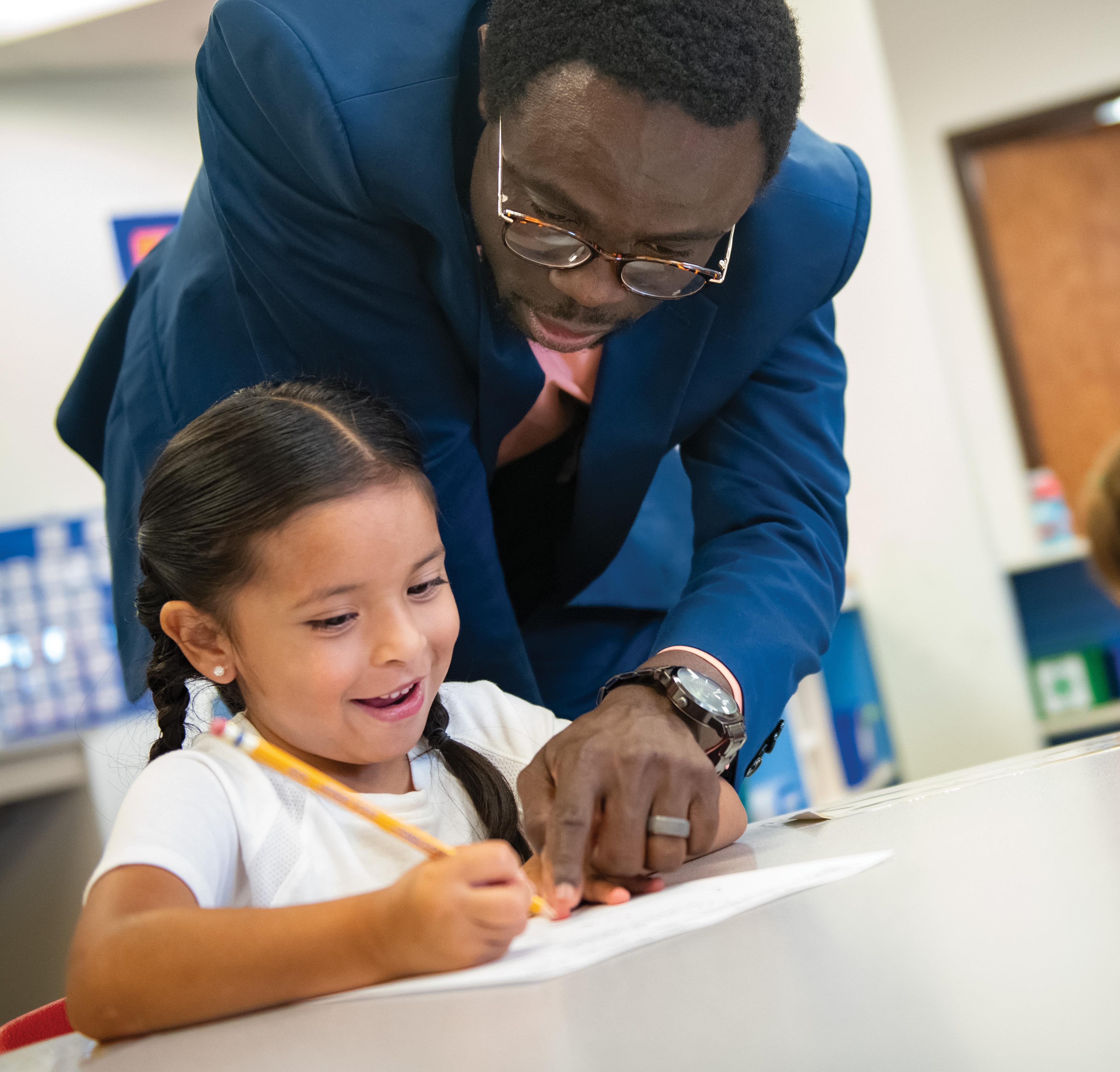
3 minute read
Skills for the Future of Education
An internship is a capstone requirement for students in UW’s principal and superintendent certificate programs. The opportunity serves as a bridge between the scholarly work with which students engage during their classes and the practice-based leadership that they will encounter in their careers. The goal of the internship is to equip students with relevant, site-based experiences with the many challenges and opportunities in current leadership roles.
During their internship, students are placed in schools and district offices with administrators and work alongside them for a period of time. This allows interns to experience the dayto-day situations a school administrator encounters and gives them an opportunity to apply lessons learned in the classroom to real-life scenarios.
“An important part of the internship is when the mentor thinks aloud and helps the intern understand why they are making the decisions they are making and sharing the context and history that helped them arrive at the decision or plan they made,” says UW Principal and Superintendent Internship Coordinator Margaret Hudson.
When the COVID-19 pandemic sent schools online, principal and superintendent interns figured out ways to complete many of their requirements virtually. “This experience has challenged everyone to be flexible in a changing landscape. We don’t want to pause the internship, it is a critical part of our program and there are valuable skills to learn in this new environment,” says Assistant Professor and educational leadership degree Program Coordinator Barbara Hickman. Luckily, Hickman and Hudson were able to work with the students and district partners to help find creative solutions to ensure their experiences would be meaningful and productive.
Although neither Hickman or Hudson would call the current situation ideal, the new virtual world has helped the interns get different and perhaps more varied experiences than the traditional program. The pandemic has also provided an opportunity for students to learn at the cutting edge while experiencing the challenges of leading and managing different forms of distance learning for K12 systems.
“In some ways, these experiences are preparing me for what the future of education might look like — at least the idea that remote learning, Zoom teaching, and online classes will probably become a regular part of our everyday world,” says Amy Kassel, a student in the program. “In other ways, I feel like I have not had the full experiences of discipline and instructional leadership during my internship because we are dealing with many pandemic issues.”
“It is a give and take situation. The interns might not be getting those traditional experiences, but they’re getting to experience something new and different instead,” says Hudson. “For example, online discipline problems arise, and we have an increased amount of attendance related discipline issues to deal with in the virtual school setting.”
Using distance technologies has also allowed interns to collaborate with their mentors at any time, increasing their opportunities to learn. For example, an intern is now able to join a district board meeting via Zoom instead of traveling to that meeting, and could attend those types of events in more than one district, providing an expanded scope of experiences. “I had students who were going to start their internship at the UW Lab School just as we shut down last spring for COVID,” says Hudson. “Since they weren’t able to work with me in person for the week, we worked virtually for the remainder of the year. This extended learning experience during a crisis situation would not have been possible during a normal internship experience.”
Although their meetings have shifted to virtual, the students still work closely with their mentors. Collaboration to make plans or to debrief and discuss what worked during the activity or alternative ways they could have approached different situations all happens over Zoom and email.
“I think some of the new ways of doing things will stick around. These changes add more flexibility to our programs and make it easier for working teachers to have a really good internship experience,” says Hudson.
“There are a lot of skillsets our administrators are learning as they navigate the virtual environment that help prepare them for the next century of education,” says Hickman. “From running a school entirely online or hybrid format, to keeping your staff supported and engaged while being physically disconnected from them. I think these are important skills for us to teach and focus on.”
Although the last several months have been unpredictable, our students have continued to receive an authentic experience during their internship. They have even gained new skills during the pandemic that will help them adapt to future changes in education and give them the confidence to overcome any challenge they face.









